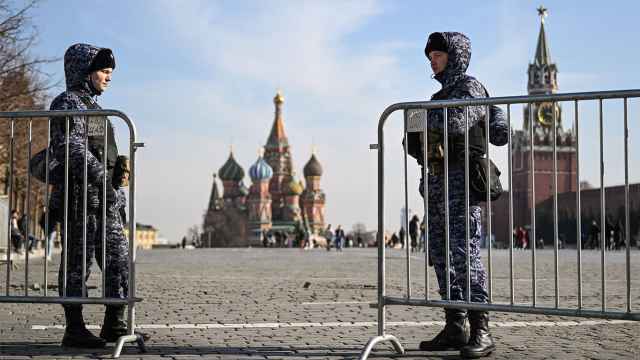Russia's annual inflation rate slipped in November to 6.8 percent, according to data on Monday showing a sixth consecutive monthly fall, increasing chances that the Central Bank may loosen monetary policy as the economy slows.
The month-on-month rate of price growth, watched closely by policy makers, slowed to 0.4 percent in November from 0.5 percent in November and undershot expectations in a poll of economists of a rise of 0.7 percent.
On a year-on-year basis, inflation slowed from 7.2 percent across a broad front as the so-called 'basis effect' of last year's drought-hit harvest flattered the current figures, putting the official year-end target of 7 percent within reach.
There was little sign of inflationary pass-through from the ruble's 11 percent depreciation against the dollar since July, as an exodus by risk-averse investors drained liquidity on local money markets.
"There is now a risk that inflation will surprise to the downside in December, with the year-end print falling even more than our own 6.8 percent forecast," Ivan Tchakarov, chief economist at Renaissance Capital, wrote in a flash note.
Tchakarov characterized inflationary pressures as "modest," while pressures on economic growth may intensify, potentially opening the door for the regulator to cut interest rates at its December policy meeting.
In its policy statement last month, when it held its key repo rate at 5.25 percent, the Central Bank dropped a key phrase from earlier releases, saying current rates would be adequate "in the foreseeable future."
The Central Bank may, however, sit tight for now to see whether a doubling of state spending in December — when fiscal outlays typically spike — creates inflation risks.
"This obviously opens room for lower policy rates, but still-robust domestic demand may keep the [Central Bank] in wait-and-see mode during its December policy meeting," commented Dmitry Polevoi, an economist at ING.
"However, the first quarter of 2012 may finally bring 25-50 basis points of key lending rates cuts, given the expected shift in the balance of risks from inflation to growth."
A Message from The Moscow Times:
Dear readers,
We are facing unprecedented challenges. Russia's Prosecutor General's Office has designated The Moscow Times as an "undesirable" organization, criminalizing our work and putting our staff at risk of prosecution. This follows our earlier unjust labeling as a "foreign agent."
These actions are direct attempts to silence independent journalism in Russia. The authorities claim our work "discredits the decisions of the Russian leadership." We see things differently: we strive to provide accurate, unbiased reporting on Russia.
We, the journalists of The Moscow Times, refuse to be silenced. But to continue our work, we need your help.
Your support, no matter how small, makes a world of difference. If you can, please support us monthly starting from just $2. It's quick to set up, and every contribution makes a significant impact.
By supporting The Moscow Times, you're defending open, independent journalism in the face of repression. Thank you for standing with us.
Remind me later.





